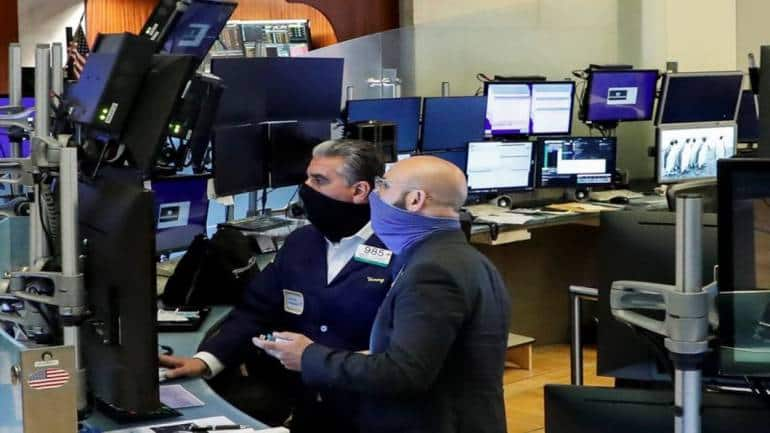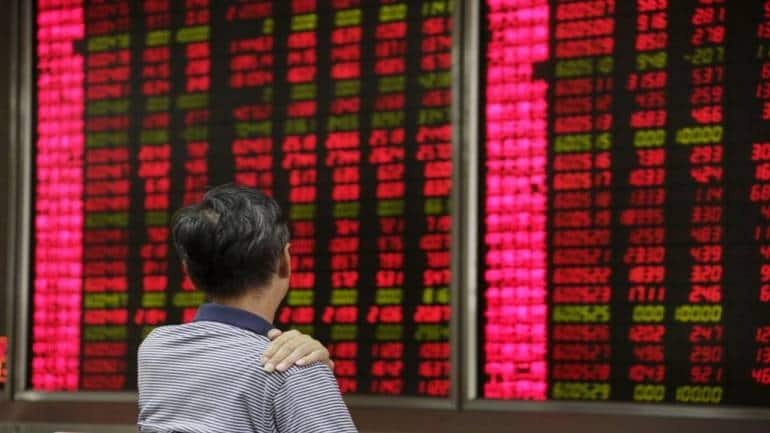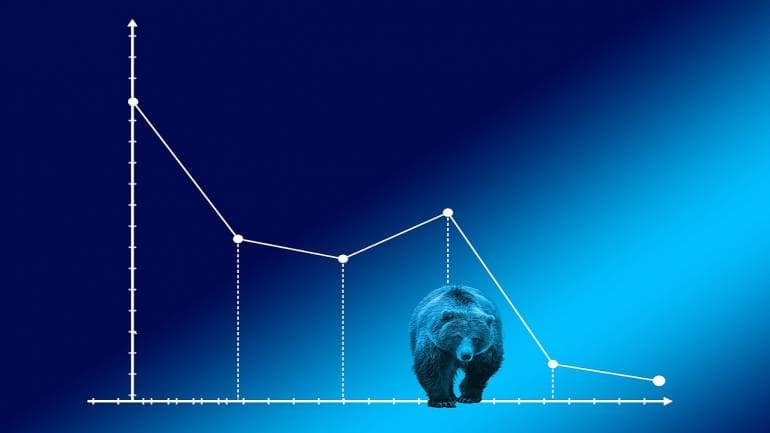Global stocks finish at record highs, oil climbs for 5th week
 ]
]
Source: Reuters
Wall Street notched broad gains on Friday, with the S&P 500 index closing at a record and global shares also finished at an all-time high, while oil prices rose for a fifth straight week.
Weaker-than-expected inflation data and news that U.S. President Joe Biden has secured a bipartisan infrastructure agreement with lawmakers gave a boost to stocks. The plan is valued at $1.2 trillion over eight years, of which $579 billion is new spending.
The S&P 500 rose 2.7% for the week, its strongest weekly gain since early February as Nike and bank stocks rose, and weaker-than-expected inflation data eased worries about a sudden tapering in stimulus by the Federal Reserve. [.N]
The Dow Jones Industrial Average rose 0.71% to end at 34,438.58 points, while the S&P 500 gained 0.34%. The Nasdaq Composite dropped 0.06% after holding near the previous session’s record high.
MSCI’s gauge of stocks across the globe closed at a record high of 721.91.
The pan-European STOXX 600 rose 0.13%, ending the week with gains of 1% following sharp swings on concerns of higher inflation hitting real income and leading central banks to raise interest rates.
Britain’s FTSE 100 index was up 0.37% and Germany’s DAX edged up 0.12%.
The latest U.S. personal consumption expenditures (PCE) data showed a measure of underlying inflation rose less than expected in May. Core PCE rose 3.4% year-over-year, above the Fed’s 2% flexible target.
“Economic data released this morning was mixed, but important readings in inflation were either in line with or slightly below expectations,” Paul Hickey of Bespoke Investment Group, LLC said in a note.
Views on the inflation outlook remained mixed.
“Today’s inflation data was another vote of confidence for the inflation is transitory camp,” said Edward Moya, a senior market analyst with OANDA.
U.S. inflation will remain elevated for two to four years, and only a market crash will prevent central banks from tightening in the next six months, BofA top strategist Michael Hartnett said in a note.
A build-up of financial stability risks linked to a low interest rate environment could lead to another downturn that interrupts the labor market recovery and impedes a return to maximum employment, Boston Federal Reserve Bank President Eric Rosengren said on Friday.
Yields for benchmark 10-year U.S. Treasuries, jumped back above 1.50% to close out a week in which yields notched their largest gains since March. [US/]
Germany’s 10-year yield, the benchmark for the euro area, edged up to -0.156%.
Emerging market stocks rose 0.89%. MSCI’s broadest index of Asia-Pacific shares outside Japan ended about 1% higher, while Japan’s Nikkei rose 0.66%.
Monetary and fiscal stimulus around the world in response to the COVID-19 pandemic is boosting financial assets, despite an uneven pace of recovery between regions, said Eddie Cheng, head of international multi-asset portfolio management at Wells Fargo Asset Management.
“Bonds go up, equity goes up, commodities go up - that is very much a liquidity-driven market,” Cheng said.
Sebastien Galy, senior macro strategist at Nordea Asset Management, said the U.S. infrastructure spending plan was “likely big enough for the economy without overheating it unnecessarily,” adding in a note that it meant “growth expectations improve somewhat.”
Oil prices rose for a fifth week after climbing to their highest since October 2018, on expectations demand growth will outstrip supply and OPEC+ will be cautious in returning more crude to the market from August.
Brent futures rose 62 cents, or 0.8%, to settle at $76.18 a barrel, while U.S. West Texas Intermediate (WTI) crude rose 75 cents, or 1.0%, to $74.05.
The U.S. dollar eased against a basket of other currencies, in choppy trading.
The Japanese yen strengthened 0.09% versus the greenback and the euro was up 0.07%.
Mexico’s peso extended gains after a surprise interest rate hike, while Latin American currencies were set to outpace their emerging market peers this week on hawkish central bank signals.
Sterling traded at $1.3885, down 0.27% on the day and on track for its worst month versus the dollar since September, after the Bank of England kept the size of its stimulus program unchanged and left its benchmark interest rate at an all-time low of 0.1% on Thursday.
Spot gold added 0.3% to $1,779.74 an ounce. U.S. gold futures gained 0.61% to $1,776.60 an ounce. [GOL/]
Global shares edge lower on new COVID-19 outbreaks in Asia
 ]
]
Global shares edged lower on Tuesday, as new coronavirus outbreaks in Asia vied with strong U.S. consumer confidence, and as investors speculated about whether the Federal Reserve would accelerate its timetable to end easy monetary policy.
MSCI’s all country world index, which tracks shares across 50 countries, fell 0.32 points or 0.04%, as declines in Asian equities undercut new highs in European and U.S markets.
The S&P 500 hit a record high for the fourth straight session, helped by technology and banks stocks, and a government survey that showed U.S. consumer confidence in June hit its highest since the pandemic started.
European stocks measured by the pan-European STOXX 600 index were up 0.5%, helped by a jump in industrial, financial and mining stocks set to benefit from economic improvements.
However, MSCI’s broadest index of Asia-Pacific shares outside Japan fell 4.16 points or 0.59 percent, to 699.86, as some countries re-imposed lockdowns to contain the spread of the Delta variant of COVID-19.
Chinese stocks lost 0.92% as investors booked profits after a rally on the economy’s strong rebound from the pandemic.
Fears over the highly infectious Delta variant are denting sentiment in markets already on edge after the Fed appeared to take a hawkish tilt this month.
Indonesia is grappling with record-high cases, Malaysia is extending its lockdown and Thailand announced new restrictions. Spain and Portugal were imposing travel restrictions on unvaccinated British travelers.
“The outlook for policy in general and the U.S. specifically, both fiscal and monetary, is the more relevant factor in the market’s mind right now rather than the spread of the Delta variant,” said James Athey, investment director at Aberdeen Standard Investments.
“That may well prove to be naive or complacent.”
On Friday, markets will watch the U.S. jobs report for June, with economists polled by Reuters expecting a gain of 690,000 jobs this month, up from 559,000 in May.
On Monday Fed Bank of Richmond President Thomas Barkin said on Monday the U.S. central bank has made “substantial further progress” toward its inflation goal in order to begin tapering asset purchases. [nW1N2B8005
Those comments and the anticipation of a strong jobs report have investors on edge that the Fed’s will bring forward its timeline for interest rate increases.
“Inflation is already much higher than the Fed was anticipating, so it is really the pace of improvement in the labor market that stands head and shoulders above every other indicator in terms of when the Fed will feel comfortable signaling the start of tapering,” said Ray Attrill, Head of FX Strategy at National Australia Bank in Sydney.
On Wall Street, the Dow Jones Industrial Average rose 78.57 points, or 0.23%, the S&P 500 gained 4.48 points, or 0.10%, and the Nasdaq Composite dropped 6.42 points, or 0.04%.
Germany’s DAX added 1%, grinding higher after data showed an easing of Germany’s annual consumer price inflation in June. The reading of 2.1% was still above the European Central Bank’s target of close to but below 2%.
Japan’s Nikkei fell 0.8%, while in Australia the ASX/200 index closed down 0.1% as increasing COVID-19 curbs dented sentiment. The South Korean market closed 0.5% lower.
Yields for benchmark 10-year U.S. Treasuries were last up less than a basis point at 1.4816%.
Germany’s 10-year bond yield was up 1 basis point at -0.173%.
The U.S. dollar rose to a one-week peak. The dollar index, which tracks the greenback versus a basket of six currencies, rose 0.128 points or 0.14%, to 92.015.
The euro was down 0.16%, at $1.1905, and sterling fell 0.4% to $1.3825. The Australian dollar, seen as a liquid proxy for risk appetite, fell 0.6% to US$0.7520.
Oil prices rose as hopes for a demand recovery persisted despite new outbreaks of the Delta variant.
Brent crude was up $0.42, or up 0.56%, and U.S. crude was last up $0.46, or up 0.63%.
Spot gold fell $-14.885 or -0.84%, to $1,763.29 an ounce.
Sensex, Nifty fall a percent each: 5 factors that triggered the sell-off
 ]
]
The Indian market suffered strong losses with the benchmark Sensex falling 626 points and Nifty falling below 15,700 in intraday trade on July 8.
At close, the Sensex was 486 points, or 0.92 percent, down at 52,568.94 while the Nifty50 was 152 points, or 0.96 percent, down at 15,727.90.
Mid and small-caps, though in red, outperformed the benchmarks as the BSE Midcap and Smallcap indices fell 0.37 percent and 0.09 percent down, respectively.
“Indian market fell as investors were concerned on a private report stating that India’s retail inflation likely to accelerate to a seven-month high in June on rising food and fuel prices, staying above the Reserve Bank of India’s comfort zone for a second straight month,” said Narendra Solanki, Head- Equity Research (Fundamental), Anand Rathi Shares & Stock Brokers.
“Some anxiety also came as Fitch Ratings cut India’s growth forecast to 10 percent for the current financial year (FY22), from 12.8 percent estimated earlier, due to slowing recovery post-second wave of COVID-19. The market failed to recover in the closing session as EU and US futures were seen trading lower which further deteriorated the already weakened sentiments for the day,” said Solanki.
Here are 5 key reasons behind the market fall:
- Weak global cues: The Indian market witnessed a sell-off in line with the most global peers. Hong Kong stocks slumped to a six-month low on July 8 as tech firms tumbled amid persistent regulatory worries, reported Reuters.
“China’s market regulator said on Wednesday it had fined a number of internet companies including Didi Chuxing, Tencent and Alibaba for failing to report earlier merger and acquisition deals for approval, according to a statement on the website of the State Administration of Market Regulation (SAMR),” reported Reuters.
European markets, too, were down ahead of the outcome of the European Central Bank’s strategy review on inflation and climate change among other points. Among the European indices, FTSE, CAC and DAX fell over a percent each.
- Caution before ECB meet: The European Central Bank (ECB) will announce the outcome on July 8 of an 18-month strategy review.
The ECB’s announcements may have significant points on inflation target and its role in the fight against climate change.
As per Reuters, its results may herald the biggest transformation of the hugely powerful but still relatively young institution that shapes monetary policy for the 19 countries that use the euro.
- COVID cases rise in some countries: COVID-19 cases have been rising in some countries, raising concerns that the fresh wave of the pandemic may derail the economic recovery.
Australia’s New South Wales (NSW) state on July 8 reported its biggest daily rise in locally acquired cases of COVID-19 this year, reported Reuters.
The highly contagious Delta variant has become the dominant coronavirus strain in the US, accounting for more than 51 per cent of Covid infections in the country, according to new data released by the Centres for Disease Control and Prevention.
-
Fed readies to taper bond-buying programme: The US Fed has hinted that it will begin to taper its asset purchases programme as soon as this year. This seems to have roiled the sentiment in emerging markets as the dollar traded near its highest in three months versus major peers.
-
Sombre economic outlook: Sentiments took a hit when Fitch Ratings decreased India’s GDP outlook for the current financial year (FY22) to 10 percent from 12.8 percent earlier, citing a sluggish recovery following the second wave of COVID-19 as a reason.
Fitch believes that rapid vaccination could support a sustainable revival in business and consumer confidence; however, without it, economic recovery would remain vulnerable to further waves and lockdowns.
The views and investment tips expressed by investment experts on Moneycontrol.com are their own and not that of the website or its management. Moneycontrol.com advises users to check with certified experts before taking any investment decisions.